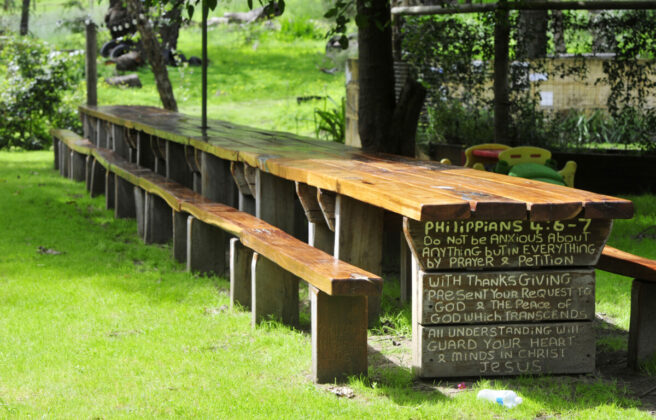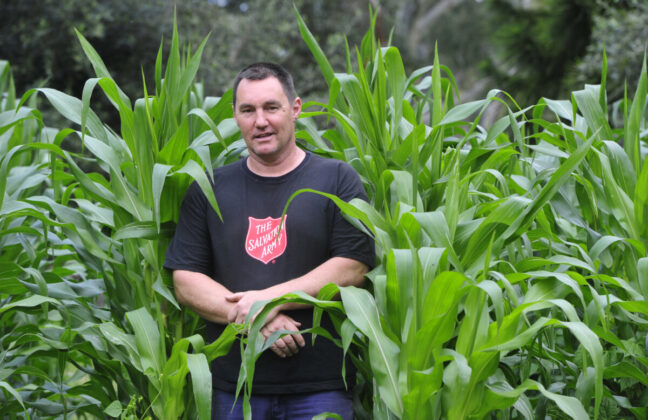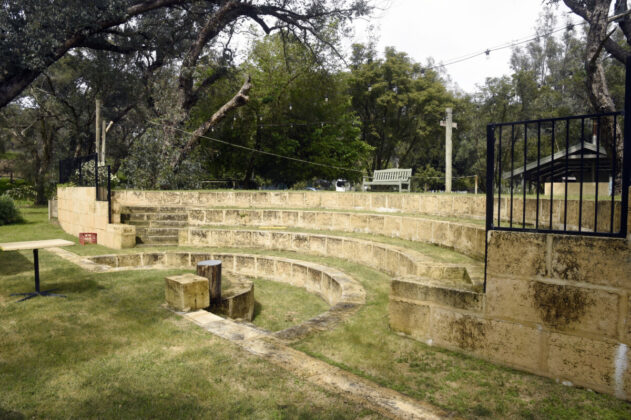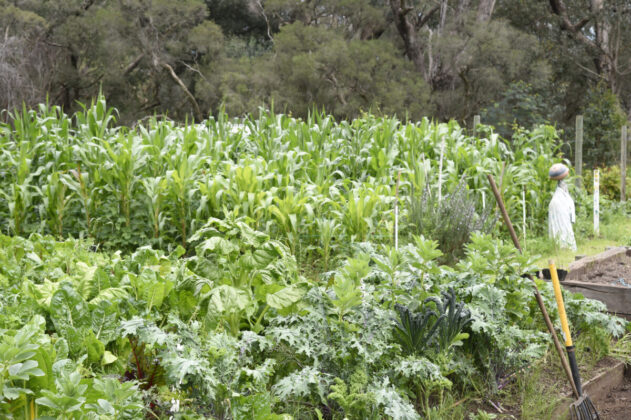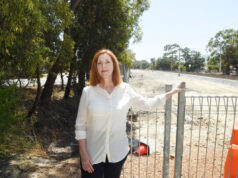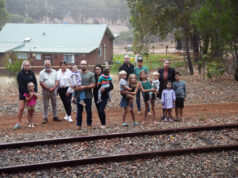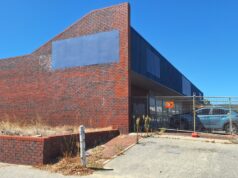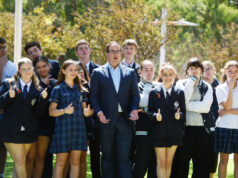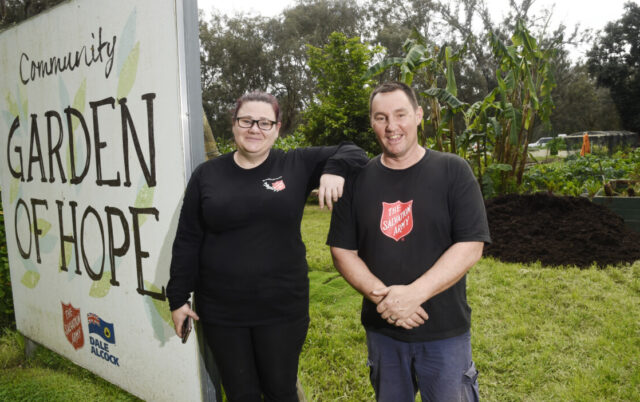
The Salvation Army’s Community Garden of Hope in Gosnells is more than just a garden; for many, it’s a thriving sanctuary of peace, healing, and hope where individuals, young and old, from various walks of life, come together.
Maintained mostly by dedicated volunteers and community members, the Garden grows a range of fruits and vegetables, offering free fresh produce to those who help tend to it.
The Community Garden also features an amphitheatre for around 200 people, a large wood table for up to 70 people, and a yarning circle where church services are held on Sunday afternoons.
Originally part of the Harry Hunter Rehabilitation Centre, now known as the Bridge Program, it has since evolved into a welcoming haven for the entire community, including past residents, Alter-1 school students, and residential aged care residents.
Mark Curtis, the mission leader at the Salvation Army, who founded the Garden ten years ago after transforming his life at the Harry Hunter Rehabilitation Centre in 2012, describes the Garden as a tranquil and beautiful space open to all.
“It’s an intimate space created to bring healing and hope to people that probably are in need of a bit of extra help, like people that might be struggling with recovery, single mums, the elderly or others with health issues,” he said.
“We’re trying to be a healthy community for people to link into when they leave the program just to support them in their recovery. A lot of our past residents come back to visit us.”
The Community Garden recently partnered with 3Bees Honey and installed beehives on the site, hoping to bring an extra touch of sweetness to their mission.
This partnership led to the creation of Garden of Hope Honey, which has already raised over $700 for the Garden, with all profits returning to the Garden.
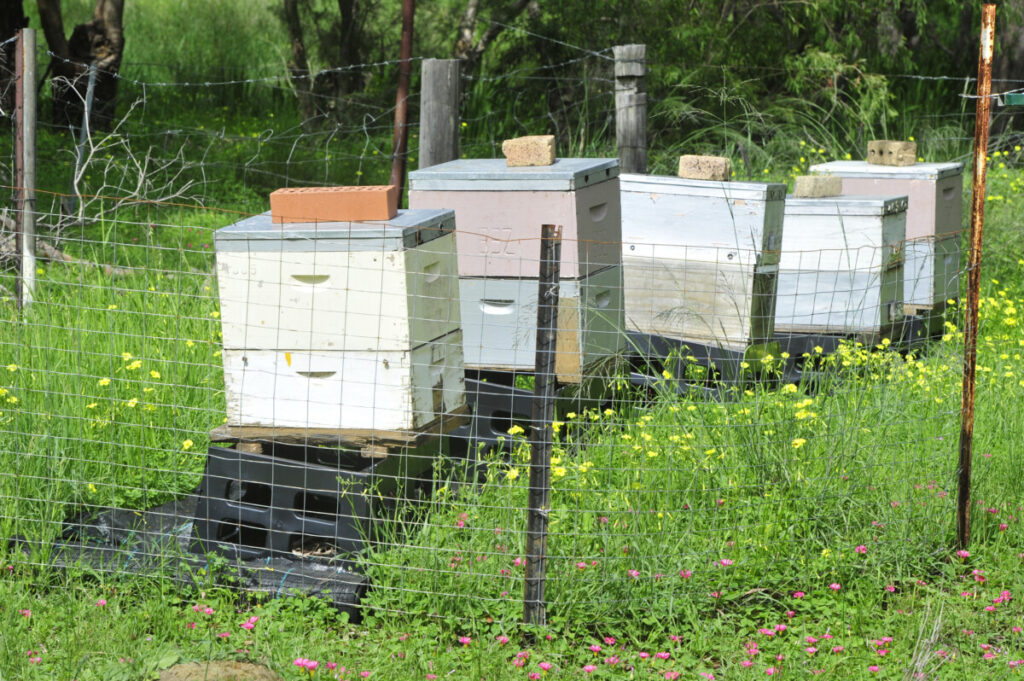
Mr Curtis said he had noticed a significant improvement in the Garden’s produce since the introduction of the hives.
“The beehives are making a massive difference to the veggies and flowers on the property,” Curtis said.
“It’s remarkable to see the difference in the fruit on the trees since the hives have been here.”
According to research conducted by Volunteering Australia, volunteering and engaging in a community can enhance mental health by increasing psychological and social capital. It encourages positive emotions, reduces stress, and fosters meaningful social roles.
Mr Curtis said he has witnessed these benefits first-hand in both volunteers and visitors.
“When people come to this space, they start engaging and they’re not all on their phone. So they’re actually having meaningful conversations and sharing a meal together.”
“I think it’s really good for people’s mental health to connect that way.”
The Garden of Hope regularly hosts social events like movie nights, community gatherings, and contemporary Christian church services, fostering connections in a welcoming outdoor setting.
Mandy Armstrong, who has been coming to the Garden since 2017 and volunteering for the past year, describes the people there as a family to her.
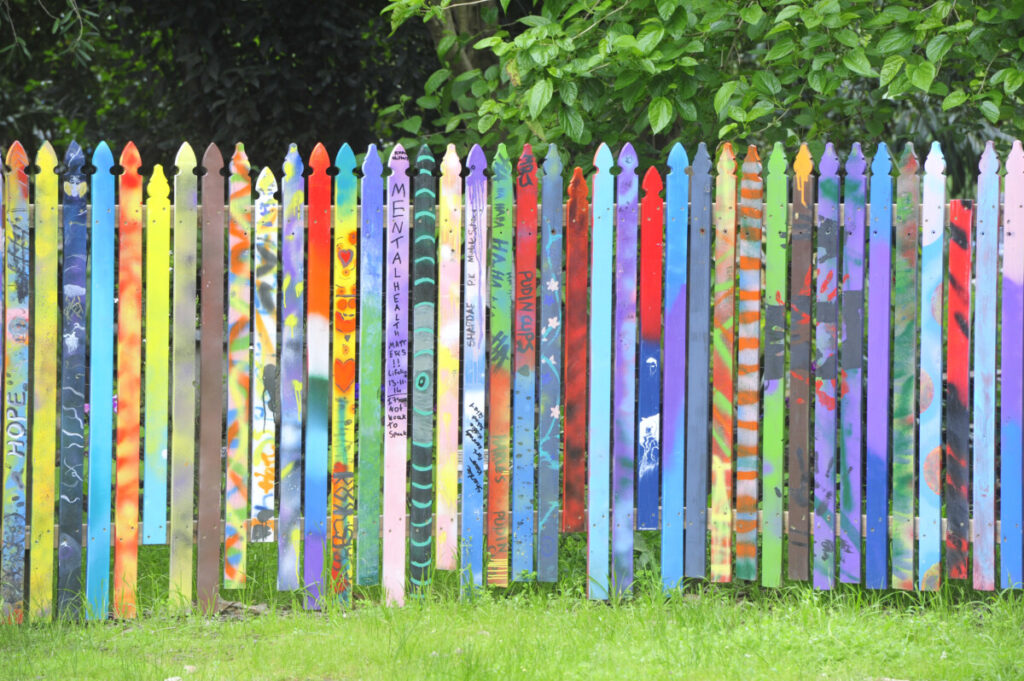
“Everyone here is so supportive, and it’s good to connect with the community,” she said.
“I love connecting with new people, sitting at the table, and sharing a meal together. Everyone brings a plate, so you learn a lot about other people’s culture.”
Henry William, originally from Poland and a regular at the Garden for the past four years, views it as a space for reflection and community.
“To me, this is a place of meditation, social, friendship, companionship, everything; it is very special to me.” – Henry William.
“I could talk about the Garden for ages, but what stands out is the programs, its diversity and most of all, its nice people. Everyone is welcome here.”
Mr Williams, who maintains the Garden’s worm farms, believes that the abundance of worms is key to the Garden’s success.
“Last year was one of the hottest and driest summers we’ve had, but as you can see, our crops still thrived as we have so many worms in the soil.”
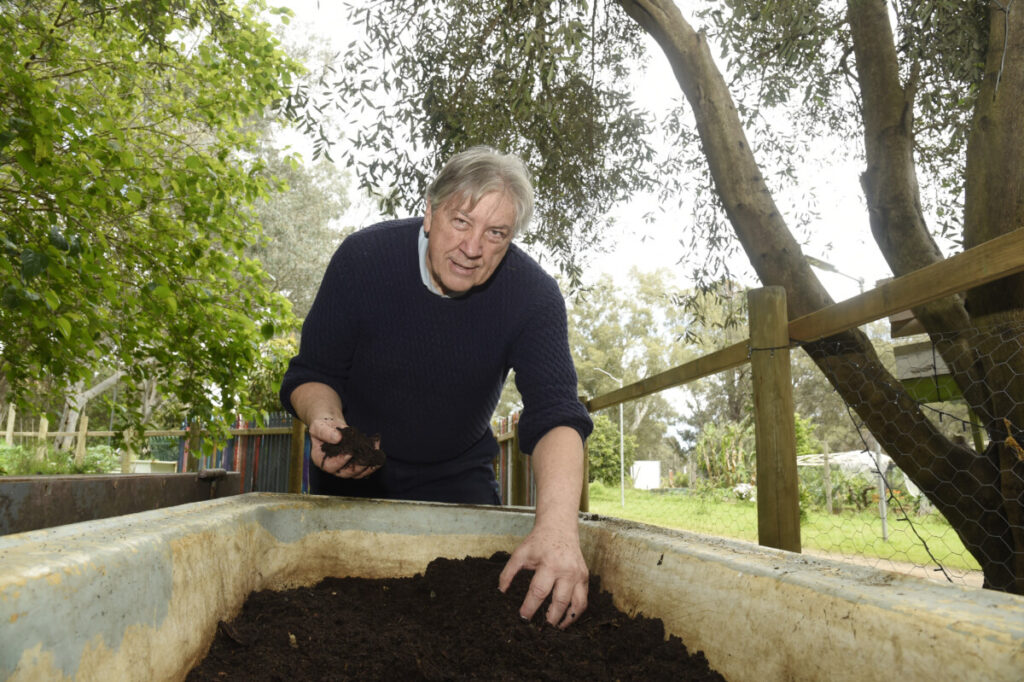
For the past ten years, the centre has been partly funded by the support of Dale Alcock. With that partnership recently coming to an end, they are now hoping to find another suitable sponsor.
“I’m really grateful for their help. The Garden wouldn’t be here if it weren’t for their support,” Mr Curtis said.
“Most of the infrastructure, everything’s in place now, including the shed, amphitheatre, and all the raised garden beds. We don’t need as much money now; we just need enough to maintain it.”


